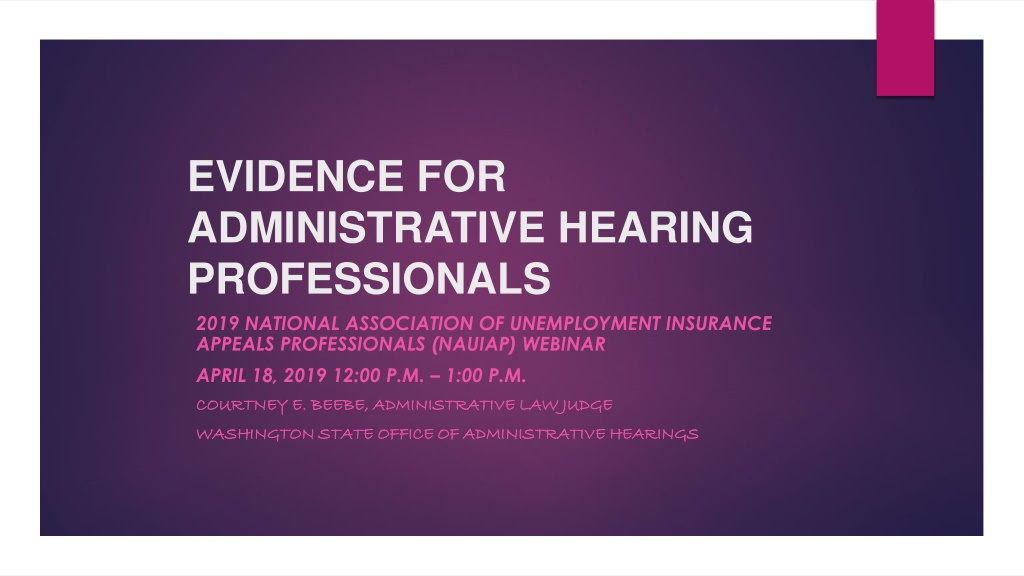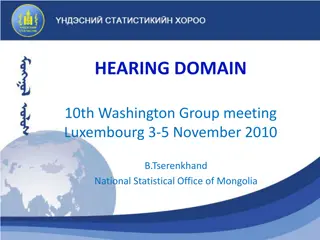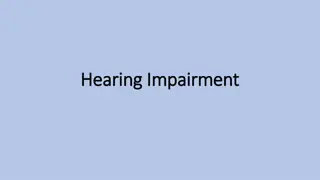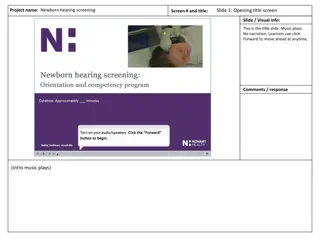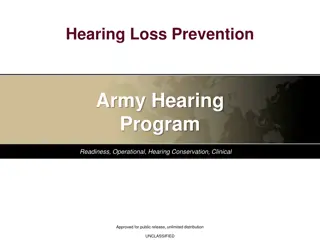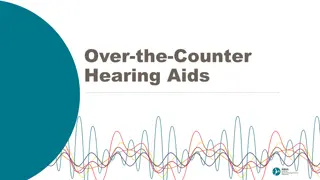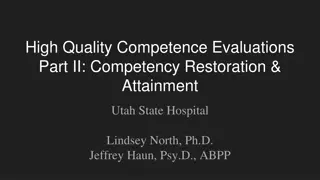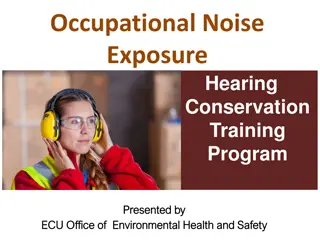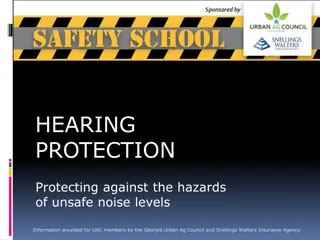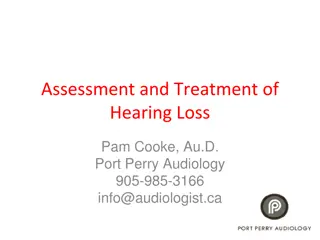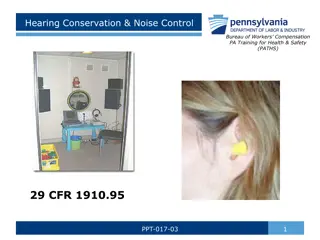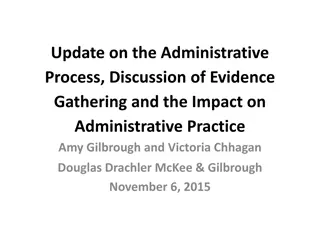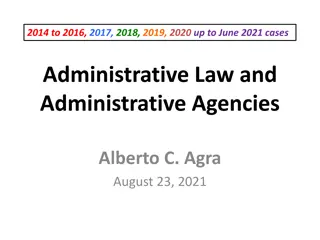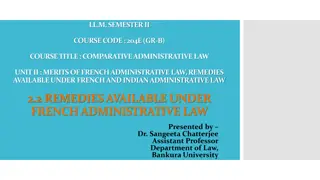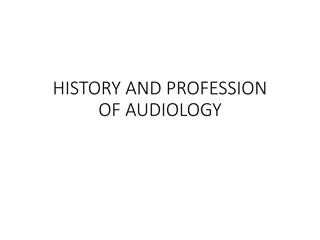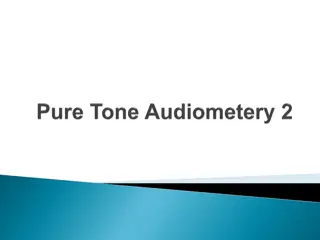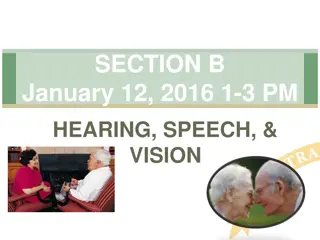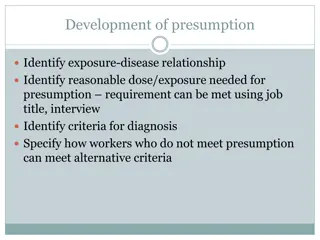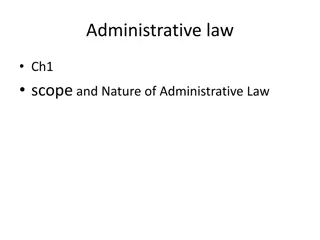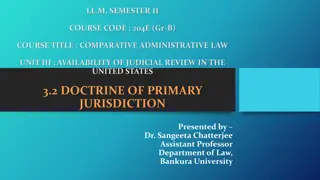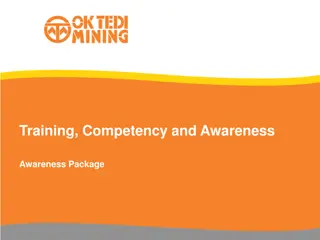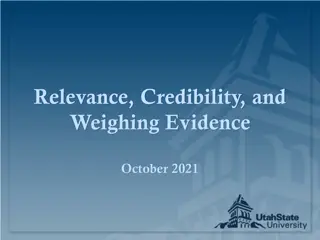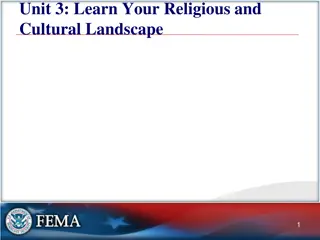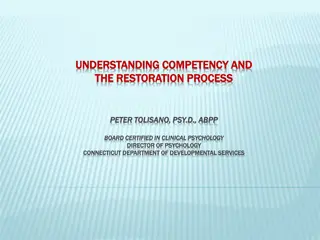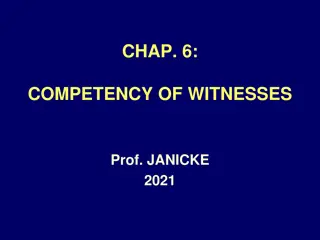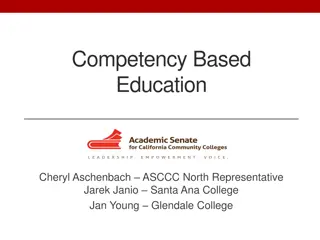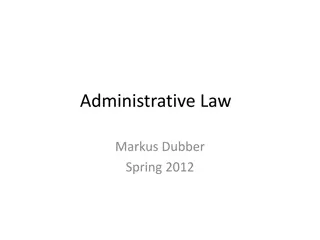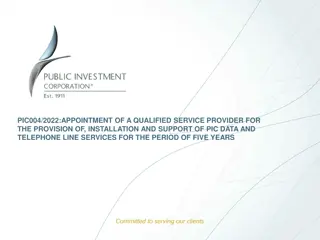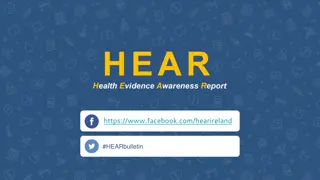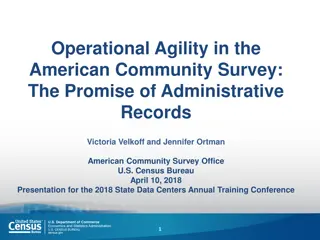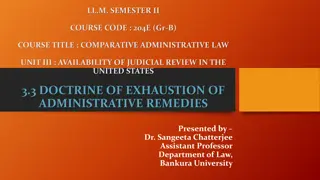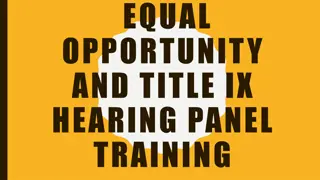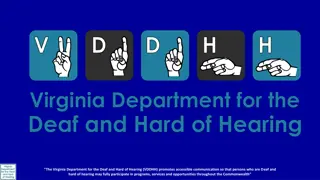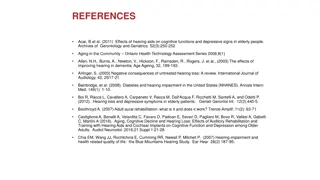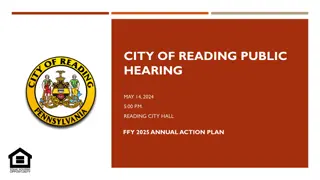Administrative Hearing Professionals: Competency and Evidence Considerations
Explore the key aspects of competency objections and evidence considerations in administrative hearings based on a fact scenario involving an employer, a trucking company, and a terminated driver. Learn about witness competency rules, burden of proof, and evaluation of evidence to make informed rulings in such proceedings.
- Administrative Hearings
- Competency Objections
- Evidence Considerations
- Unemployment Benefits
- Legal Proceedings
Download Presentation

Please find below an Image/Link to download the presentation.
The content on the website is provided AS IS for your information and personal use only. It may not be sold, licensed, or shared on other websites without obtaining consent from the author. Download presentation by click this link. If you encounter any issues during the download, it is possible that the publisher has removed the file from their server.
E N D
Presentation Transcript
EVIDENCE FOR ADMINISTRATIVE HEARING PROFESSIONALS 2019 NATIONAL ASSOCIATION OF UNEMPLOYMENT INSURANCE APPEALS PROFESSIONALS (NAUIAP) WEBINAR APRIL 18, 2019 12:00 P.M. 1:00 P.M. COURTNEY E. BEEBE, ADMINISTRATIVE LAW JUDGE COURTNEY E. BEEBE, ADMINISTRATIVE LAW JUDGE WASHINGTON STATE OFFICE OF ADMINISTRATIVE HEARINGS WASHINGTON STATE OFFICE OF ADMINISTRATIVE HEARINGS
EVIDENCE FOR ADMINISTRATIVE HEARINGS PROFESSIONALS ASSUMPTIONS: Evidence is Relevant to the Parties Claims and Defenses Hearsay is Admissible Burden of Proof: Preponderance of the Evidence ( More Likely Than Not )
COMPETENCY OBJECTIONS A Competent Witness is someone that has relevant information and who can impart that information in a meaningful manner. FRE 601: General Rule of Competency Every person is competent to be a witness except as otherwise provided in the rules. FRE 602: Personal Knowledge Rule - A witness may not testify to a matter unless evidence is introduced sufficient to support a finding that the witness has personal knowledge of the matter. Whether a witness is competent rests in the sound discretion of the ALJ
COMPETENCY OBJECTIONS Three Distinct Areas of Witness Competency: Overall Competency This Class of Witness is Legally Restricted from Testifying in Any Proceeding Situational Competency This Class of Witness Cannot Testify in the Particular Kind of Proceeding Specific Factual Competency This Particular Witness Cannot Testify Because the Witness Lacks Any Personal Knowledge of Relevant Events.
FACT SCENARIO Employer, a trucking company, has a policy that states it will terminate a driver s employment if a driver receives three (3) warnings for violating traffic laws. Driver has received two prior warnings from the Employer for speeding. During the final incident Driver was traveling thirty (30) miles per hour in a thirty-five (35) mile per hour zone in heavy rain and Driver had to swerve his truck and slam on the brakes in order to avoid hitting a pedestrian. Employer s Receptionist viewed the incident from the Employer s reception area. Employer terminated Driver s employment for driving to fast. At his unemployment benefits hearing, Driver argues that 1) he was not speeding during the final incident, 2) he had never received a warning about this conduct in the past, 3) the pedestrian caused the incident, and 4) he acted appropriately during the entire incident and did not receive any citations.
How would you rule? 1. The Employer asks the Receptionist witness What was Driver s facial expression was after the incident. Objection, Competency. 2. While testifying about what she observed the Receptionist Witness states that Driver s driving skills and attitude were inferior. Objection, Competency.
COMPETENCY v. CREDIBILITY WHAT IS CREDIBILITY? That quality in a witness which renders his evidence worthy of belief. Competency is the QUALITY of the testimony. Credibility is the SUM OF THE FACTORS taken into consideration and the available corroborative evidence.
COMPETENCY v. CREDIBILITY FACTORS to consider: Time between event and initial report Time between event and testimony Conditions of the Event Visual, Auditory and Intellectual Acuity Attention / Focus of the Observer Relative Expertise Detail of Recall
COMPETENCY v. CREDIBILITY The Demeanor Myth There is a long history of demeanor judgments in the law, i.e. observing the witness behavior and determining whether a party is truthful or not. However, there is no analytical support for demeanor judgments. Certain physical, socio-economic, cultural and personality traits have no place in assisting the trier of fact in determining whether a witness is credible and lead to the expression of bias.
COMPETENCY v. CREDIBILITY Evaluating Conflicting Testimony: Require Corroborative Evidence Question Reports That Change Over Time Question Highly Detailed Reports Produced After a Long Delay Interpret Differences in Behavior Carefully Determine Whether Discussion of Event Occurred Prior to Initial Report Presence of Suggestive or Leading Questions During Investigation
How Would You Assess the Credibility of the Witnesses Testimony? Driver testifies as follows about the road conditions: The road was absolutely scary. The road ruts were filled with water and the rain was coming so fast the windshield wipers couldn t keep up. I saw another car hydroplane at one point. Receptionist testifies as follows about the road conditions: What was the condition of the road when you observed Driver swerve to miss the pedestrian? Receptionist Witness answers It was a light spring rain at the time of the incident. I saw some puddles in the road and it was breezy.
Comparing and Contrasting Weight, Sufficiency and Substantiality WEIGHT: The relative value assigned to the credible evidence offered to support a party s position on a given issue. The relative persuasiveness of a given piece or collection of evidence as compared with other evidence; that subjective, evaluative process that every trier of fact uses in the process of determining which evidence, if any, the trier of fact is going to accept as true. In terms of review, the weight of the evidence is to be decided by the trier of fact and is not subject to reversal. Weight of the evidence is an inherent element of the evidence. Each piece of evidence has its own weight that must be assessed and measured, not dispensed or allocated.
HOW WOULD YOU WEIGH THE EVIDENCE? Driver testifies as follows about the road conditions: The road was absolutely scary. The road ruts were filled with water and the rain was coming so fast the windshield wipers couldn t keep up. I saw another car hydroplane at one point. Receptionist testifies as follows about the road conditions: What was the condition of the road when you observed Driver swerve to miss the pedestrian? Receptionist Witness answers It was a light spring rain at the time of the incident. I saw some puddles in the road and it was breezy.
Comparing and Contrasting Weight, Sufficiency and Substantiality SUFFICIENCY OF EVIDENCE Sufficiency of evidence is a preliminary question, i.e. whether the evidence available is the kind of evidence which will permit or require an agency to make a factual decision. Evidence is sufficient if it is of such quality and weight that reasonable and fair minded persons in the exercise of impartial judgment could find in accordance with it. Washington Law: Evidence must be sufficient to persuade a fair- minded person of the truth or correctness of the matter. Ongom v. Dept. of Health, 124 Wn App. 935, 948-49, 104 P.3d 29 (2005), reviewed on other grounds, 155 Wn.2d 1001, 122 P.3d 185 (2005).
Comparing and Contrasting Weight, Sufficiency and Substantiality SUBSTANTIALITY The test applied by a reviewing body after the case has been decided; but a test that all findings of fact made must pass. Is each finding of fact that has been made by the agency a finding that a reasonable person could make in light of all the evidence in the record, including any evidence which weights against the finding? Substantial Evidence is such relevant evidence as a reasonable mind might accept as adequate to support a conclusion. Substantiality is not a standard of review.
Comparing and Contrasting Weight, Sufficiency and Substantiality LEGAL RESIDUUM RULE Principle that even though the ALJ must admit the evidence into the record, this does not mean that the piece of evidence supports a finding of fact. Carroll v. Knickerbocker Ice Co., 218 NY 435, 113 NE 507 (1916). HEARSAY: Mere uncorroborated hearsay does not constitute substantial evidence. Consolidated Edison v. NLRB, 305 US 197, 230, 59 S.Ct. 206 (1938). The LRR interjects into the substantial evidence equation an artificial rule that forbids an administrative adjudicator from utilizing certain types of evidence in finding facts, even if the evidence is reliable and probative. For this reason, the LRR is roundly criticized and often rejected. Reguero v. Teacher Standards and Practices, 312 OR. 402, 414-17 (1991); Richardson v. Perales, 402 US 389, 91 S.Ct. 1420 (1971).
FACT SCENARIO Raychel v. Employment Security Dep't., 112 Wash. App. 1003 (2002) (unpublished): The Employer s HR Rep s testimony referred to the Employee s personnel file documentation that the Employee 1) lost her temper at work and cursed on two prior occasions before the final incident that she was fired for (yelling and cursing at work) and 2) the Employee had received the Employer s personnel handbook prohibiting yelling and cursing at work. The Employee testifies that she raised her voice and used one swear word.
Is the testimony sufficient? Can an ALJ base the findings of fact on the hearsay testimony of the Employer s HR Rep? Can an ALJ base the findings of fact on the Employee s testimony? What are some of the considerations?
THANK YOU! Courtney E. Beebe, Administrative Law Judge courtney.beebe@oah.wa.gov
